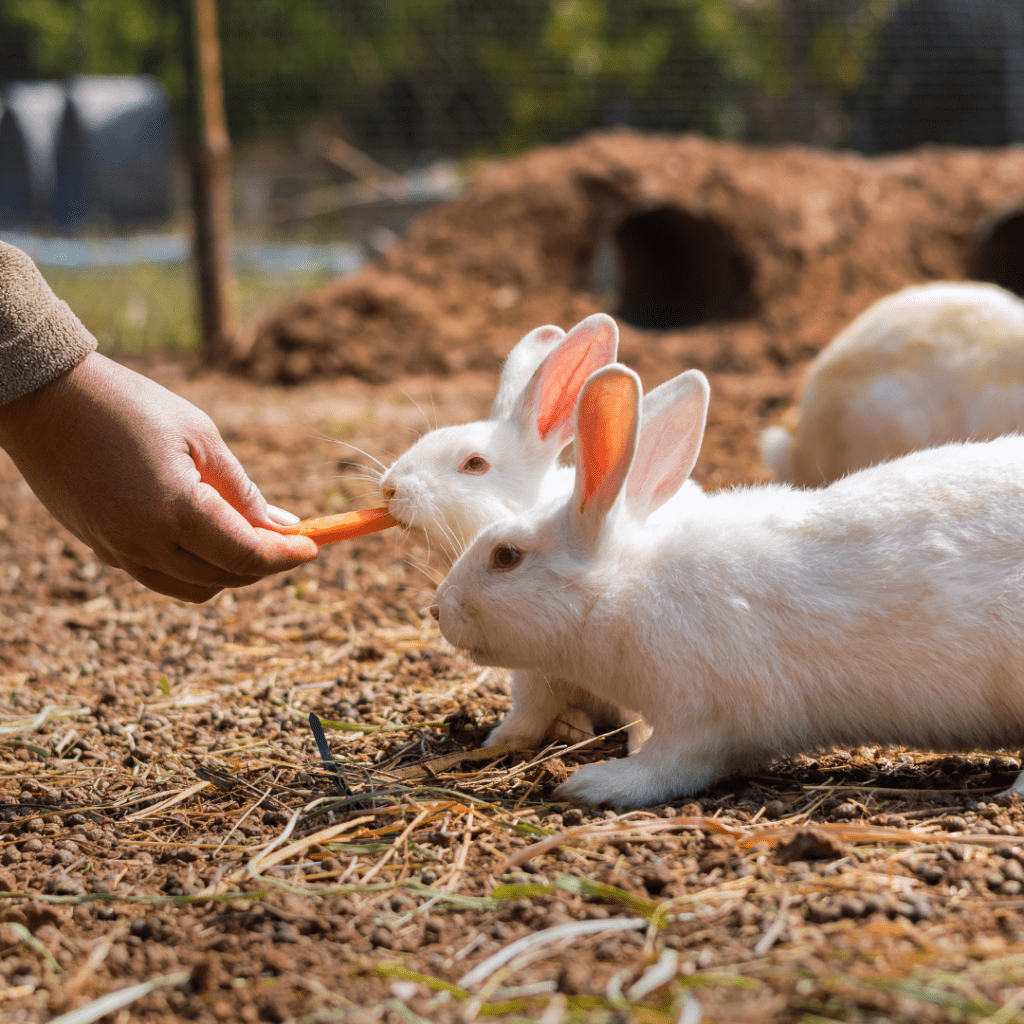Easter will be here before we know it and chocolate bunnies won’t be the only thing being purchased around that time. By the way, did you know that over 91 million chocolate bunnies are bought each year around Easter? That’s a lot of chocolate bunnies!! While there won’t be 91 million, the adoption of rabbits will increase during February, since it’s Adopt A Rabbit Month, and during Easter time, too. Many parents plan on gifting their child/children with what seems to be a cute, furry friend for Easter and some even go out on a whim and get one with no prior planning. Whether you’re adopting a rabbit spontaneously or planning it, here are some things you should know:
- Rabbits are not low-maintenance pets. These intelligent and social animals require daily enrichment activities, exercise, and socialization. They are energetic so it’s important to provide them with things that will help them spend their energy. Otherwise, they may find something to occupy them, like chewing on your favorite shoe or a lamp cord, to keep them entertained.
- You have to “bunny-proof” your home. Rabbits can easily destroy your furniture, carpet, molding, and wires. They’ll even eat any loose paper laying around.
- Their diet is NOT carrots and bunny pellets. Rabbits actually require a constant supply of hay. It is vital for their digestive and dental health. This is a big thing for families that may have allergies. Something else to consider is that their diet has to be supplemented with fresh vegetables on a daily basis. Dandelion greens, romaine lettuce, and herbs are all good for rabbits and the cost of these additional groceries can add up quickly.
- Rabbits are not inexpensive pets. My House Rabbit has a great article that breaks down the cost of a pet rabbit. The initial cost for one is estimated to be up to $390 with ongoing costs of around $85 per month.
- Rabbits are not good for children. Rabbits are prey animals so they like to be kept on the ground. Children tend to want to cuddle and pick them up which startles them. When a rabbit feels something holding it, it may get aggressive and then scratch the child as it tries to flee. If you’re going to adopt a rabbit for a child, it’s better to have an older child so that they can participate in their care and understand how to safely handle the rabbit.
While there are many pros to having pets in general, a rabbit is a pet that you’ll want to put deep thought into. You may want to consider talking with a veterinarian about the life expectancy and care they will need. The more information you have, the better off you are.
If you do decide to adopt a rabbit, the House Rabbit Society shares a great article For People New to Rabbits that provides some useful resources. They also have a brochure that contains a lot of practical information including how to feed and house-train your new rabbit and bunny-proof your home before the rabbit arrives. Something else you may want to consider after getting a rabbit is hiring an animal communicator. Talking with an animal communicator can help you understand if the rabbit is happy with their environment, this will lessen the risk of them destroying property and engaging in undesired behaviors. This is just one of the ways an animal communicator can help. To learn about other ways, you can schedule a consultation.



